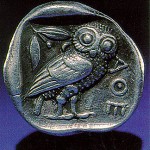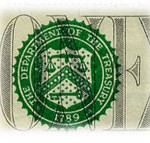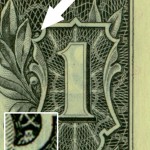This entry briefly turns to one of literature’s greatest epics to shed further light on ideas expressed in the last blog.
Upon his return home in The Odyssey, Odysseus lays waste to the suitors who have plagued his court in his absence. Then he, along with his father and son, sets out to battle the suitors’ vengeance-minded families on the Ithacan plains. More bloodshed is imminent.
At this point in the story the goddess Athena approaches Zeus in his heavenly abode on Mt. Olympus. “Our father, son of Cronos, highest of all rulers,” she begins, “Tell me when I ask, what plan of yours is concealed here? Will you fashion further an evil war and dread battle, or will you establish friendship between both sides?”
To this “cloud-gathering Zeus” replies: “My child, why do you ask me and question me about this? Why did you not think out this idea by yourself, that Odysseus might indeed take vengeance on them when he came? Do as you wish, but I will tell you what seems fitting. Since godly Odysseus has done vengeance on the suitors, let them solemnize an oath, that he may always reign. And let us bring about oblivion for the murder of their sons and kinsmen. Let them love one another as before, and let there be abundant wealth and peace.’”*
Arguably, we can see the jurisprudence that was discussed in the last entry at work here in this exchange between Athena and Zeus. Athena in essence is tacitly suggesting to Zeus that it would be prudent to end the bloodshed. Zeus takes in her question and digests it, mulls it over. In fact, his first three statements in response to her seem almost as if he is buying himself time in which to consider his answer by way of his own feeling function. That is to say, his consequent evaluation that the warring should cease, those in pain and suffering should be granted “oblivion” or forgetfulness, and, finally, that love, wealth, and peace should be had by all quite impressively exhibit the rational decision-making powers of the feeling function with its emphasis on values, especially the value of empathy.
If we take one further step back to focus not on processes but mythic symbols and more specifically symbolic figures, we seem to have confirmation of this idea: Athena as a non-traditional female figure born from the head of Zeus herself symbolizes this rational feeling function and its process of evaluation. Or to employ once again more mytho-legalistic terminology, she is the prudentia — the feeling wisdom and foresight — to the law and order of Zeus’s juris. Together they comprise jurisprudence.
After Zeus’s above-quoted declaration, Athena descends from Mt. Olympus to be among the Ithacans. The bloodshed ceases, and then Athena “established oaths for the future between both sides.”** Here we have a couple important ideas. The first is that Athena’s relationship to Zeus in a way reminds one of the variants of the saying “Behind every successful or great man is a successful or great woman.” Athena is, you might say, among other things the great woman behind Zeus, which is to be understood psychologically as the animating spirit behind his actions and proclamations. Finally, Athena’s animating spirit not infrequently has to do with the well-being of the collective community or polis; this is why she secures “oaths for the future” from both sides of the Ithacan conflict.
The second idea has to do with Athena’s attending to and even standing by this joint “future.” As is still apparent today, Athena was (some might say still is) the tutelary or protecting deity of the polis otherwise known as Athens. For about the five hundred year period following 500 B.C. the Athenians had a likeness of Athena on one side of their tetradrachm coin while the other side showed the animal most frequently associated with her: the owl. (The image at the head of this entry is from one such coin.) The owl is an animal associated with the ideas of wisdom, vision, and foresight – not surprisingly all attributes of Athena.
The inscription on the face of the coin shown above may be translated into English as “the money of the Athenians” or even “Athene (another spelling of Athena) of the Athenians.”** It seems fair to say, does it not, that as Athena was Athen’s protecting deity, another way of putting this motto, “Athena of the Athenians,” in modern lingo, is “In Goddess We Trust.” So Mythfire now poses this question: “is the feminine wisdom, based on values and symbolized by Athena, something that still watches over us today?”
In the last entry we discussed how the phrase “In God We Trust” appears in many if not most courtrooms in the U.S. Another place where that phrase appears is of course on the U.S. currency. Take for example the U.S. one dollar bill where the phrase appears on what’s called the bill’s reverse side. Flip it over to the obverse side and you see good old George Washington’s face. To the right of George you’ll quickly find the U.S. Treasury Seal, discovering in the same instant that lo and behold within the Seal there is the image of the scales – the symbol of weighing and balancing not only monetary currency but also spiritual or psychological currencies, i.e. spirit and heart-soul, masculine and feminine, and thinking and feeling — all of which have been discussed throughout the “Myth and Justice” series.
Look to the upper right corner of this same side of the bill and what do you see? As in the image to the right, there seems to be something unusual depicted above and to the left of the number “1.” Many people see therein an owl – Athena’s symbolic animal. Now – before you get too excited at this discovery or, equally possible, groan because it seems to be “trying too hard to see what can’t possibly be there” take note of the olive branches both overshadowing our owl guardian and appearing elsewhere on the bill. If we remember that the olive branch and olive tree — symbolizing peace — were associated with Athena every bit as much as the owl, (take another look at the Athenian coin above and you’ll see the olive branch), it seems undeniable that the values of wisdom and foresight, and peace and prosperity for the commonwealth – all associated with Athena – are still with us today. That is, just as “behind every great man is a great woman” and behind Zeus stands Athena, behind the God of “In God We Trust” is the animating spirit of “In Goddess We Trust.”
A very valuable goddess indeed…
——
On Friday: Myth & Justice VI.5 (“In God/dess We Trust — Part III”)
——
*Homer. The Odyssey. Trans. Albert Cook. New York: Norton, 1993; lines 473-486.
**Ibid. Line 547.
***The Encyclopedia Britannica: a Dictionary: Vol. XVII. Ninth Edition. Philadelphia: J.M. Stoddart Co. Ltd., 1884; p. 684.




